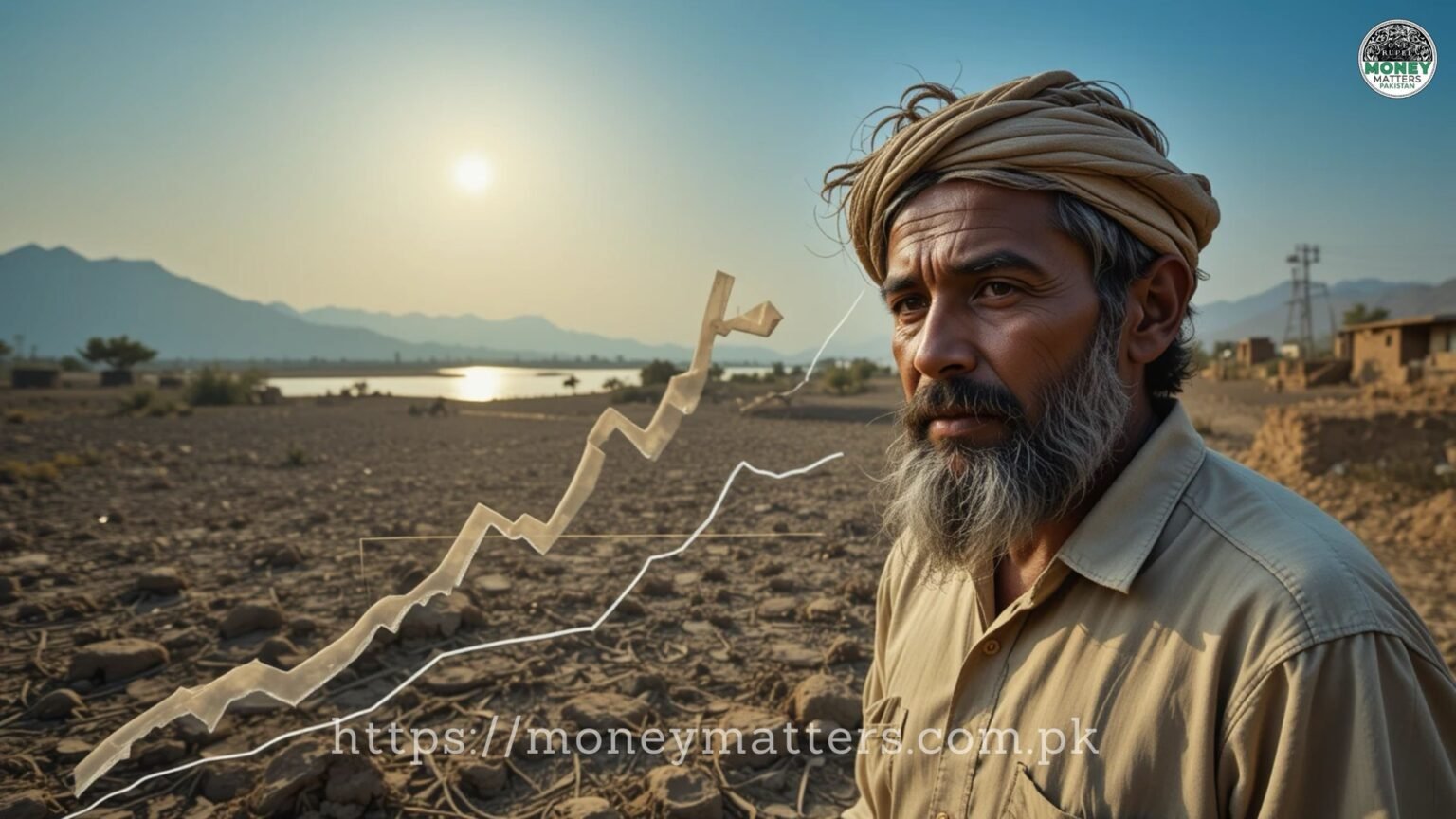The Nation Faces Mounting Financial Burdens and Development Setbacks Amidst Unfulfilled International Climate Finance Pledges
Key Takeaways:
i) Pakistan, despite its minimal contribution to global greenhouse gas emissions, is among the most vulnerable nations to climate change, experiencing severe economic losses and humanitarian crises.
ii) The unfulfilled pledge of $100 billion per year in climate finance from developed nations to developing countries has significantly hampered Pakistan’s ability to implement crucial climate adaptation and mitigation strategies.
iii) The economic ramifications of climate disasters, such as the 2022 floods, underscore the urgent need for international financial support to bolster Pakistan’s climate resilience and avert further developmental setbacks.
Money Matters Monitoring – In a recent analysis published by The Friday Times titled “Climate Justice Denied: The $100 Billion Betrayal and Pakistan’s Climate Crisis” and authored by Mehak Ather, concerns were raised regarding the severe economic and developmental challenges Pakistan faces due to climate change, compounded by the failure of developed nations to deliver on their climate finance pledges. The author states, “Pakistan, despite contributing less than 1% to global greenhouse gas emissions, finds itself on the front lines of the climate crisis.”
She highlights that the nation’s vulnerability is exacerbated by the unfulfilled promise of $100 billion per year in climate finance, originally pledged by developed countries to assist developing nations in their climate action efforts. This shortfall has left countries like Pakistan grappling with the devastating impacts of climate change with insufficient resources. “This betrayal has left countries like Pakistan struggling to recover from climate-induced disasters and invest in essential adaptation and mitigation measures,” according to Mehak Ather.
The economic consequences of climate change for Pakistan are profound. Between 1992 and 2021, climate- and weather-related disasters resulted in economic losses of approximately $29.3 billion for Pakistan, equivalent to 11.1% of its 2020 GDP. The catastrophic floods of 2022 alone caused an estimated $30 billion in damages and losses, affecting over 33 million people and leading to significant displacement and livelihood destruction. This single event resulted in a projected 2.2% loss in Pakistan’s Fiscal Year 2022 GDP. Experts from the World Bank Group predict that the combined risks of extreme climate-related events, environmental degradation, and air pollution could reduce Pakistan’s GDP by at least 18% to 20% by 2050, further hindering efforts towards economic development and poverty reduction. The agriculture sector, which is the backbone of Pakistan’s economy and relies heavily on irrigation, is particularly vulnerable, with projections suggesting significant yield declines in key crops.
The article emphasizes that Pakistan’s urgent need for financial assistance to build resilience and implement climate-smart infrastructure remains largely unmet. This situation not only threatens Pakistan’s economic stability but also its food security and public health, pushing more communities into poverty and displacement. The reliance on traditional methods, which are proving insufficient against changing climatic patterns, further underscores the necessity of robust international support.
The continuous denial of adequate climate justice to Pakistan poses a significant threat to its long-term economic stability and social well-being, demanding a more proactive and equitable response from the global community.




